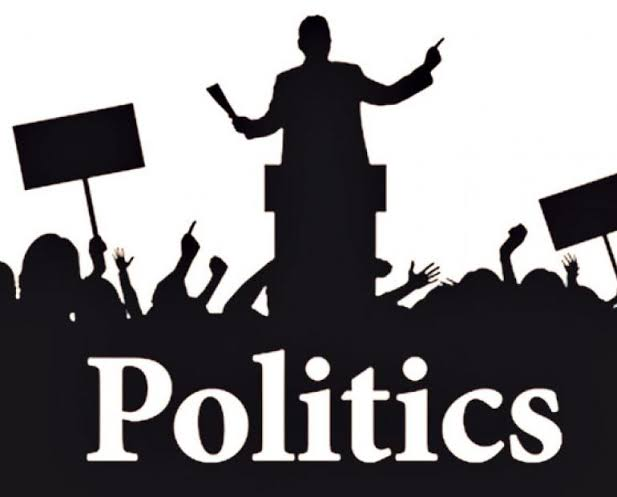Politics refers to the activities and processes associated with the governance of a society or a country. It involves the exercise of power, decision-making, and influence over public affairs, policies, and institutions. Politics encompasses a wide range of activities, including elections, policy formulation, lawmaking, diplomacy, negotiation, and administration.

Source of Image
It encompasses both the theory and practice of government and includes various political ideologies, systems, and ideologies, such as democracy, socialism, capitalism, monarchy, and more. Politics can also encompass the interactions and dynamics among different political actors, including political parties, interest groups, politicians, citizens, and international organizations. The study of politics aims to understand how power is distributed, how decisions are made, and how conflicts are resolved in the pursuit of collective goals and the common good.
Functions of Politics
Politics serves several key functions in society, which can vary depending on the political system and context. Some of the main functions of politics include:
Governance:
Politics provides the framework for governing a society or a country. It involves the creation and implementation of laws, policies, and regulations that shape the behavior of individuals and institutions, and ensure order, stability, and the provision of public goods and services.Representation:
Politics allows for the representation of different interests, perspectives, and voices in decision-making processes. Through elections and other mechanisms, people have the opportunity to choose and be represented by leaders who can articulate their needs, concerns, and aspirations.Conflict resolution:
Politics provides a mechanism for managing conflicts and resolving disputes in society. Through negotiation, compromise, and peaceful means, politics can help address conflicting interests and resolve disagreements among different individuals, groups, or communities.Policy formulation:
Politics involves the development and implementation of policies to address social, economic, and other challenges. It includes the identification of problems, the formulation of solutions, and the allocation of resources to achieve desired outcomes.Social change:
Politics can be a means for advocating and promoting social change. Through political activism, advocacy, and social movements, politics can drive social, cultural, and economic changes, and advance the interests of marginalized groups or promote broader societal transformation.Legitimacy and accountability:
Politics provides the basis for establishing the legitimacy of government and holding elected officials and institutions accountable for their actions. Through elections, checks and balances, and other mechanisms, politics ensures that those in power are accountable to the people they serve.Diplomacy and international relations:
Politics plays a critical role in shaping international relations and managing interactions between different countries and international organizations. It involves negotiation, diplomacy, and decision-making on global issues such as trade, security, and environmental policy.
These are some of the key functions of politics, which collectively contribute to the governance, representation, policy-making, and societal dynamics of a country or a society.
Good Effects of Politics
Politics can have several positive effects on a country, including:
Stable Governance: Politics provides a framework for establishing stable governance structures, such as democratic systems, that allow for peaceful and orderly decision-making processes. This can help ensure that the country is governed in a consistent and predictable manner, with the rule of law and respect for human rights.
Representation and Participation: Politics allows for representation of diverse interests and perspectives, enabling citizens to have a voice in the decision-making process. It provides avenues for political participation, such as elections, where people can choose their leaders and hold them accountable, fostering a sense of ownership and empowerment among citizens.
Policy Formulation and Implementation: Politics involves the formulation and implementation of policies that address societal challenges, such as economic development, social welfare, healthcare, education, and infrastructure. Well-crafted policies can have positive impacts on the country's economy, welfare, and quality of life for its citizens.
Social Change and Progress: Politics can be a catalyst for social change and progress. It provides a platform for advocacy, activism, and social movements that can bring about positive changes in areas such as civil rights, gender equality, environmental protection, and social justice.
Diplomacy and International Relations: Politics plays a crucial role in shaping a country's foreign policy and international relations. It allows for diplomacy, negotiation, and cooperation with other countries and international organizations, fostering international peace, security, and economic cooperation.
Economic Development: Politics can create an environment conducive to economic growth and development. Sound economic policies, investment in infrastructure, and a stable regulatory framework can attract domestic and foreign investment, create jobs, and stimulate economic progress.
Infrastructure and Public Services: Politics involves the allocation of resources for public services and infrastructure development, such as roads, bridges, schools, hospitals, and utilities. Adequate investment in these areas can improve the quality of life for citizens, promote social welfare, and foster economic development.
These are some of the positive effects of politics on a country, which can contribute to stability, representation, policy-making, social change, and progress for the betterment of society and its citizens. However, it's important to note that politics can also have negative effects, such as corruption, political polarization, and abuse of power, which need to be addressed and mitigated for the overall well-being of a country